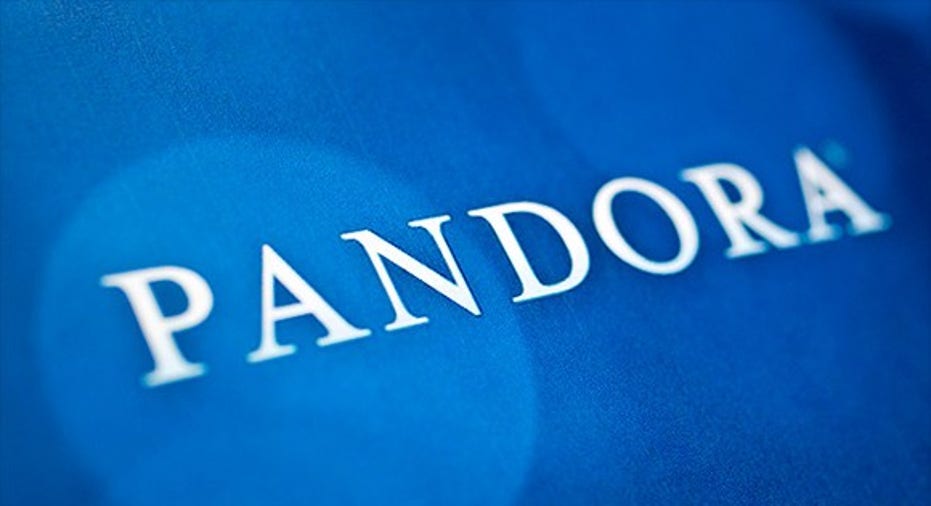Pandora, Inc. Buyout? A $1 Billion Hedge-Fund Manager Thinks So.

Image source: Pandora.
Rumors that struggling Internet-radio pioneer Pandora Media is trying to sell itself have existed for some time, but the fuse for such an event may just have been lit.
Earlier this month, hedge fund Corvex Management disclosed a sizable stake in Pandora, with the stated intent of helping to spur a sale for Pandora. This all sounds great for a business and stock that have struggled mightily in recent years. But will it work?
Here's why I have my doubts.
Corvex takes a stake in Pandora
Last week, New York-based activist hedge fund Corvex Management announced that it had acquired a 9.9% stake in Pandora. In traditional activist fashion, Corvex entered its Pandora investment with a plan -- sell the company to the highest bidder.
Like many hedge funds, Corvex keeps a relatively low media profile, but it does come with an impressive activist pedigree. Run by Keith Meister, a longtime acolyte of billionaire activist investor Carl Icahn, Corvex produced 13.5% annualized returns over its first three and a half years in operation, according to The Wall Street Journal. This performance nearly doubles the annualized returns of the HFR Activist Index -- an aggregate benchmark for similar funds -- over the same period.
In the case of Pandora, Corvex reportedly sent the company a letter urging the digital-music pioneer to sell itself rather than pursue a "costly and uncertain business plan." Corvex has reportedly already met with Pandora's new management, which led to Corvex's decision to avoid attempting to place one of its associates on Pandora's board of directors, for now at least.
Corvex's strategy to sell Pandora probably seems palatable to retail shareholders who have watched its stock price plummet in recent years. But will anyone actually want Pandora?
Easier said than done
Corvex's investment thesis rides on the assumption that Pandora can prove to be a valuable asset for a strategic buyer. That's not an absurd idea, but it's not exactly clear-cut, either.
As a general proposition, a strategic acquirer would want to own Pandora for one or two reasons. First, an acquirer might want to tap into its profits -- though buying on that basis seems tenuous, since Pandora has never generated consistent profits.
Image source: Pandora.
Second, a company might wish to produce some kind of synergy, such that the combined entities could tap into one another's resources for a greater financial gain than may be possible as separate companies.
Pandora's music-sorting algorithms are among the best in the industry, and the company still counts 79.4 million monthly active users, even though user growth has stagnated. So who could benefit from buying either Pandora's tech or its users? With Pandora's market cap currently around $2.6 billion, before assuming any takeout premium, a potential acquirer would have to be large enough to foot a multibillion-dollar bill and interested in entering into or advancing its place in the digital-music space. The problem is, those types of companies don't grow on trees.
Step right up
Most large tech companies with interests in digital entertainment -- namely Apple, Alphabet, and Amazon.com -- already have some kind of streaming product. Sure, Pandora's online radio tech could attract some more paying users for any of these names. If anything, though, the recent trend on the tech side of the online media business has been a move toward online video as a way of supporting digital-music platforms. This idea isn't implausible, but it doesn't seem particularly likely, especially given the nine-figure price tag that would be required to seal the deal for Pandora.
But what about a media or telecom company?
A recent article from Barron's floated telecom companies such as Verizon and media conglomerates such as Liberty Media . However, it isn't clear how adding Pandora's services could augment a telecom business, as there are already plenty of music apps to choose from in the Android and iOS handsets Verizon and its counterparts sell. Making Pandora exclusive to Verizon probably wouldn't help drive subscribers. There could be some kind of tie-in with Verizon's AOL subsidiary, which is quickly emerging as a force in ad-tech. Is Verizon willing to spend several billion dollars to take that kind of risk? Perhaps.
Another scenario in which Pandora could be accretive to the right buyer could involve a name like Liberty Media, which in the past has coveted other big media names, such as Sirius XM. However, there's a sizable difference between Sirius and Pandora in terms of their business models and profitability that would probably make Pandora far less attractive to a media giant like Liberty Media. Again, this could certainly happen, but the likelihood is far from clear-cut.
So while Corvex may push for a Pandora buyout, that doesn't mean it will happen.
The article Pandora, Inc. Buyout? A $1 Billion Hedge-Fund Manager Thinks So. originally appeared on Fool.com.
Suzanne Frey, an executive at Alphabet, is a member of The Motley Fool's board of directors. Andrew Tonner owns shares of Apple. The Motley Fool owns shares of and recommends Alphabet (A shares), Alphabet (C shares), Amazon.com, Apple, Pandora Media, and Verizon Communications. The Motley Fool has the following options: long January 2018 $90 calls on Apple and short January 2018 $95 calls on Apple. Try any of our Foolish newsletter services free for 30 days. We Fools may not all hold the same opinions, but we all believe that considering a diverse range of insights makes us better investors. The Motley Fool has a disclosure policy.
Copyright 1995 - 2016 The Motley Fool, LLC. All rights reserved. The Motley Fool has a disclosure policy.



















